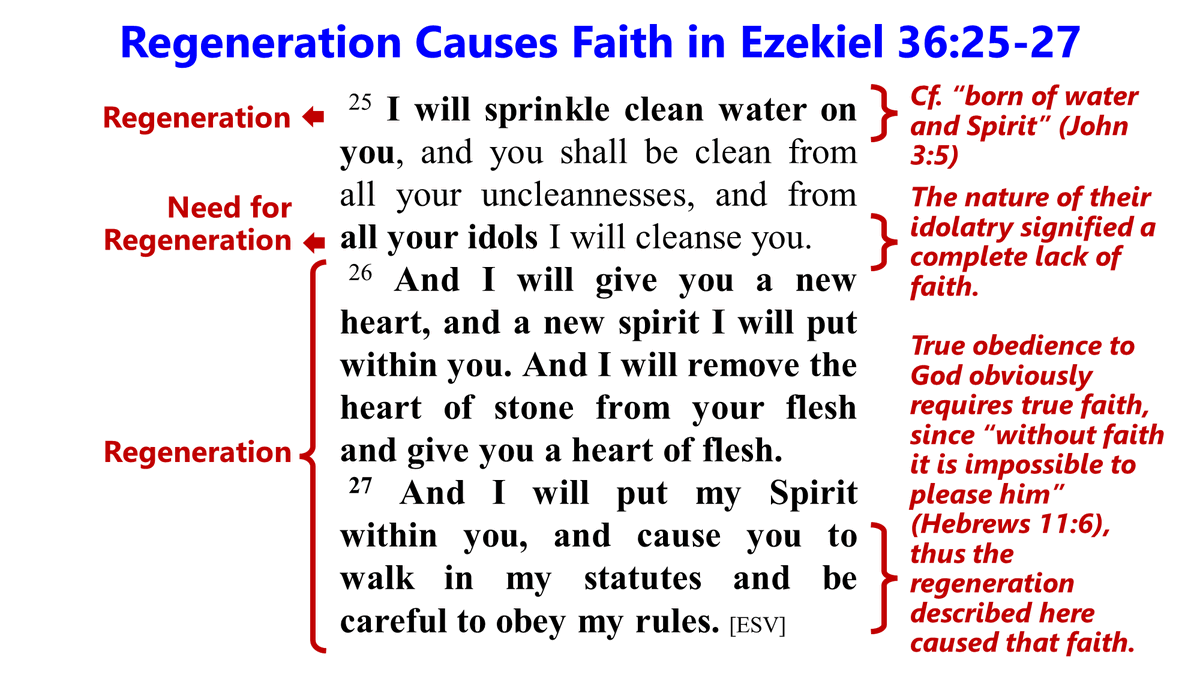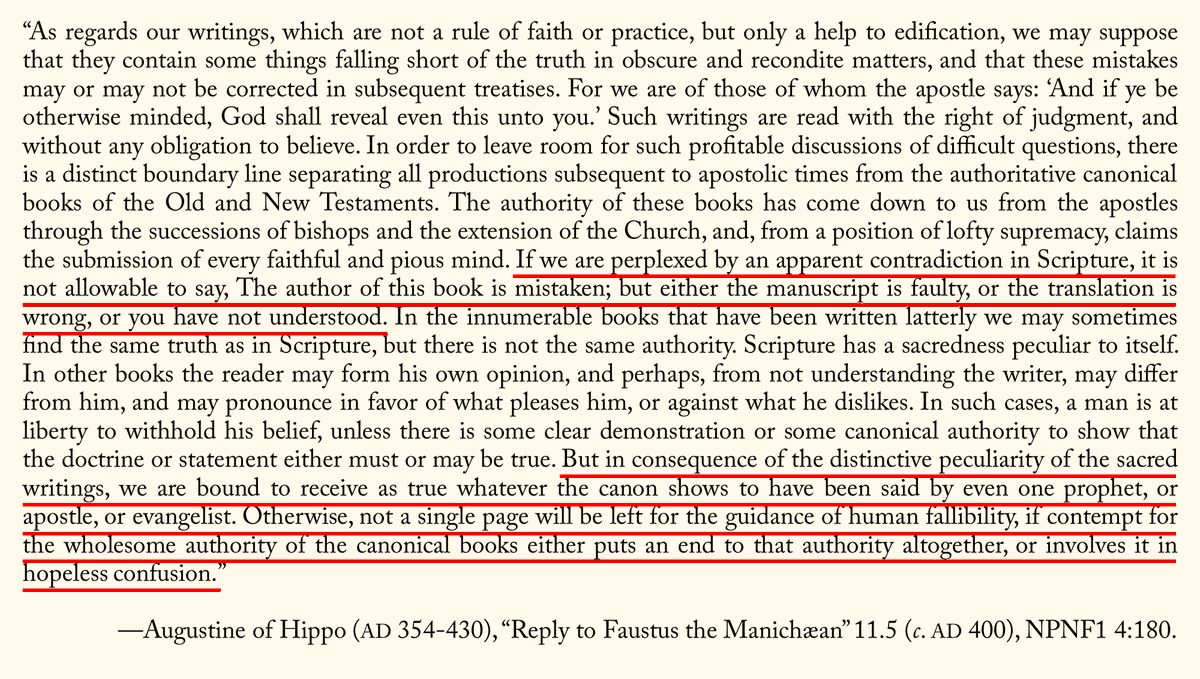🧵On Saturday, @Soteriology101 asked me to list “the top three” places in Scripture where I claim “we find the teaching of nature-changing regeneration causing faith.” He also said, “if they actually mention the words ‘nature, regeneration or faith’ that would be great.”
𝟏/𝟗
𝟏/𝟗

I told him I hoped to be able to fulfill this request today, and that I trusted “top three” did not represent a limit. Plus, I decided to do more than just list them. Hence this thread.
Note: since (a) biblical language is much more flexible than the theological jargon…
𝟐/𝟗
Note: since (a) biblical language is much more flexible than the theological jargon…
𝟐/𝟗
…we adapt from it, and (b) “regeneration” is only used once to refer to the new birth in English translations that even have it, I will supply those texts that teach the concept regardless of how they word it.
I hope you all find this thread helpful. Thanks!
𝟑/𝟗
I hope you all find this thread helpful. Thanks!
𝟑/𝟗
• • •
Missing some Tweet in this thread? You can try to
force a refresh























